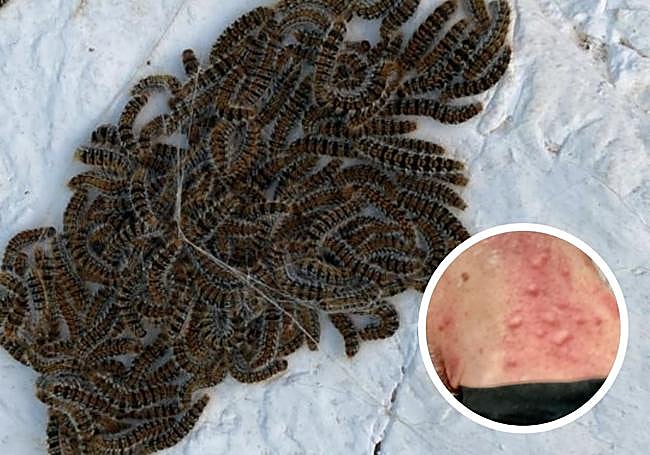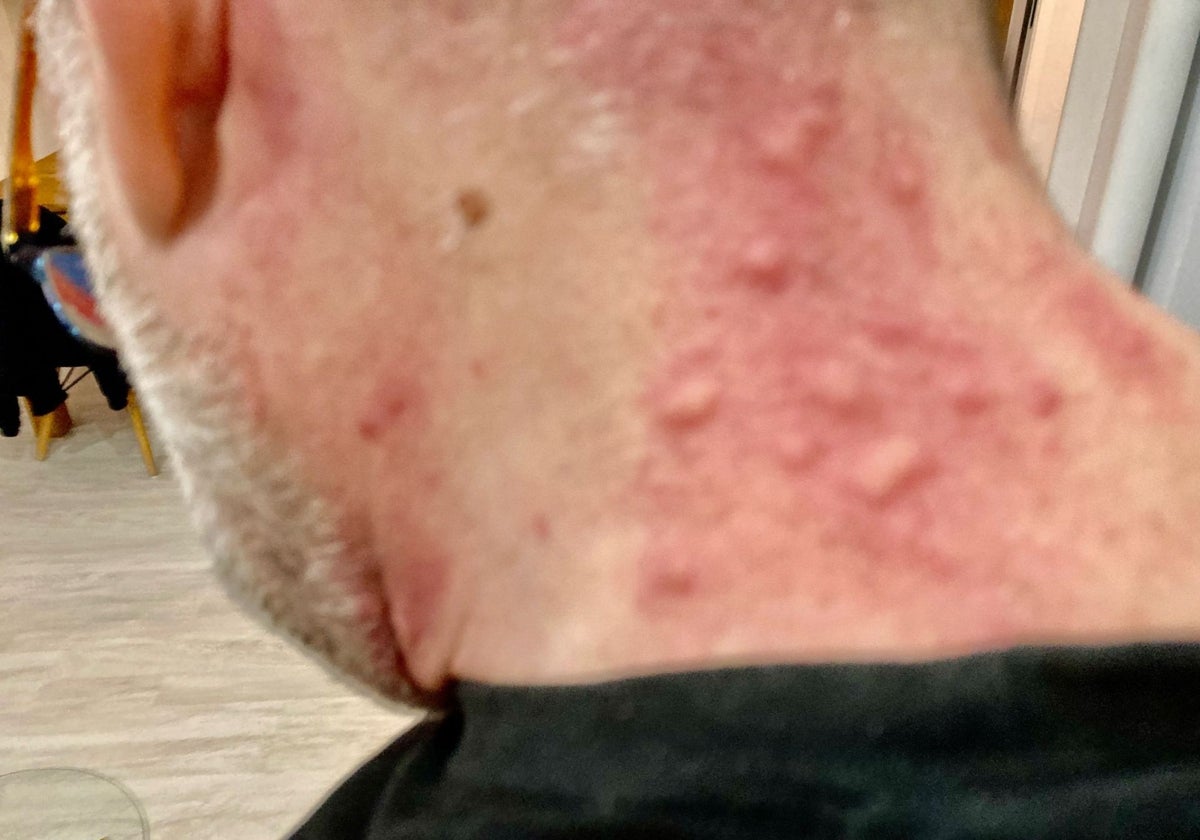Malaga family besieged by 'plague' of processionary caterpillars: 'It is like being in a horror movie'
Adolfo Cayuso has had severe allergic reactions to the pests and claims that the new biological treatments imposed by the EU "do not work"
Adolfo Cayuso lives with his wife, his son and their three German Shepherds in the Valseca area of Los Montes de Málaga. This winter they are suffering the worst invasion of pine processionary caterpillars since they moved there almost a decade ago. According to Cayuso, although the Junta de Andalucía's forestry agents have treated the pine trees that the caterpillars build their nests in, the new products imposed by the European Union are much milder and do not work.
"This year it has exploded, everything is infested with nests, there are hundreds of them," Cayuso says. As a result, once the caterpillars started descending from the trees a month ago, he has been suffering with severe hives which he has to treat with antihistamines and corticoids. "The caterpillars eject their stinging hairs when they feel threatened and here, when it is always a bit windy they fly and I have to go out in a bubble, like a beekeeper, because there are so many hairs in the air. It is a very unpleasant situation," he described. Cayuso said he can't even think about going out for a walk because they even get through his clothes.
"More caterpillars than ever"
He described the situation as "a horror movie" and added, "I'm not squeamish but the rows and balls of caterpillars are everywhere." To make matters worse, Cayuso mainly works from home so doesn't even leave the house every day. The situation is even more dangerous for his dogs: "We have spent a lot of money on vets; one of them is still undergoing treatment," he said.
The family has tried various home methods to try to deal with the caterpillars, but they aren't working. And the cause, in their opinion, is that the insecticide treatments that the Junta has applied this year "do not work as they should". Cayuso says, "The worst thing is that they tell us that they can't do anything, that now everything has to be ecological because of European legislation. They said they have sprayed by ground and aerial means, but with a biological insecticide that consists of bacteria that, rather than killing them, seems they have fed them, because we have never had so many problems."

Zoom

Junta admits new insecticides are "less persistent".
The regional government's department for sustainability and environment in Malaga admits that there is a problem with both the "biological" and synthetic active substances and products that the EU has authorised. "The difference with those previously authorised and used (mainly diflubenzuron/Dimilin) is that they were considerably more effective and above all much more persistent over time, which resulted in greater ease of application and effectiveness by acting on the entire population of processionary," the department has said.
Instead, bacillus/Foray is now being used for the aerial spraying and deltamethrin/Decis on the ground. "Bacillus is not comparable to diflubenzuron as they are totally different methods. It is less effective, much less persistent and much more complicated to apply," they say. "As for the deltamethrin we used before and now it is exactly the same, but much less persistent, which lowers the effectiveness a little bit."
Cayuso also explained that the caterpillars have severely damaged the pine trees they have colonised. "They say that chemical insecticides are not allowed because they affect them, but the forest is infested with thousands of caterpillars and is drying out," he said, adding, "The forest agents are aware that this product does not work. They walk around, they see it and they also suffer from hives, but their hands are tied."
The only solution they have been given is to put a pheromone trap on each tree to stop the caterpillars from coming down, but this is not viable for the family as each device costs 35 euros. "That's a lot of trees and these products are very expensive," Cayuso pointed out.

